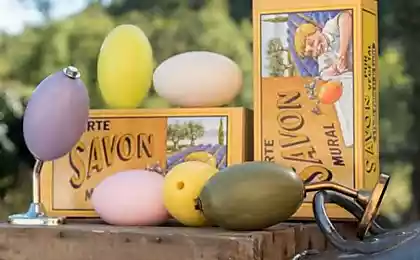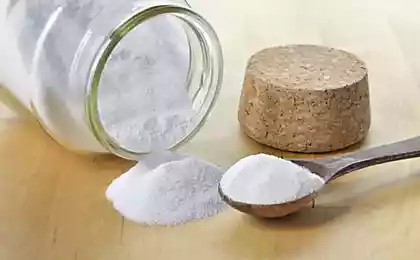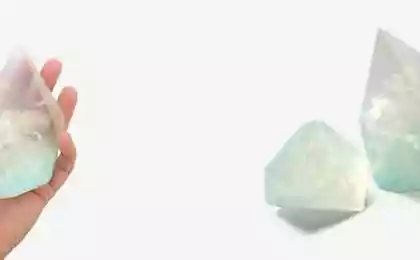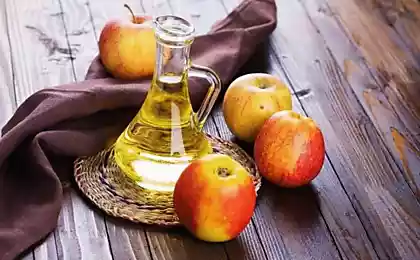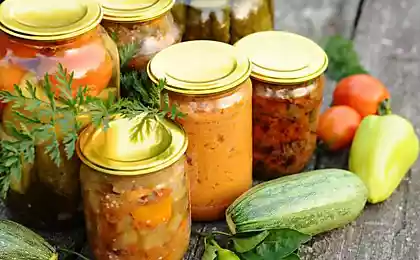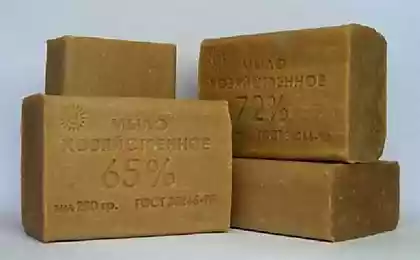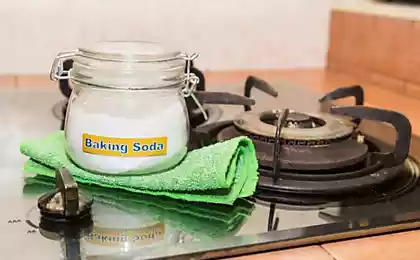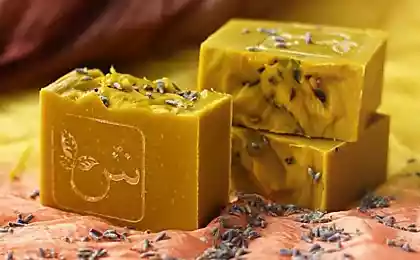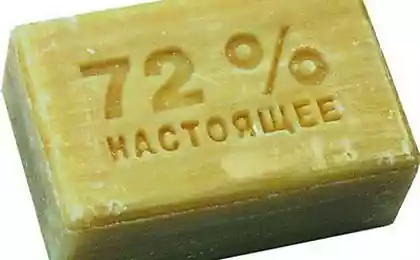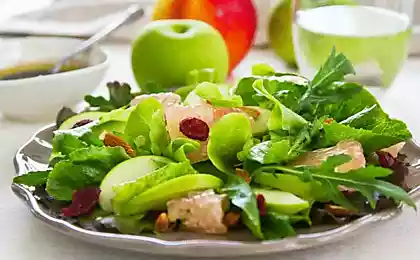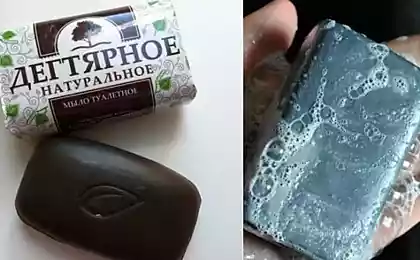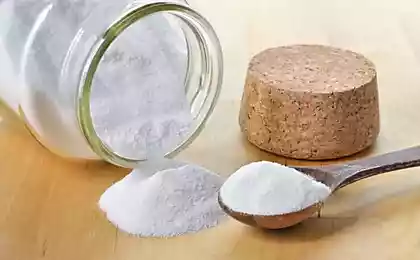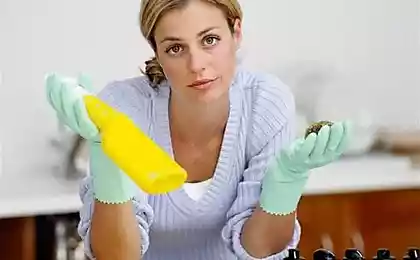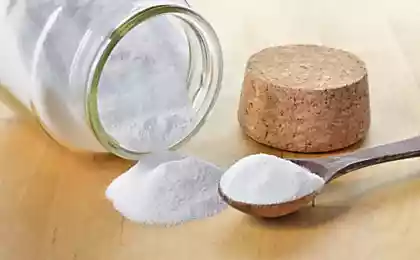192
Grandma lived with his grandfather, a military pilot, in a dugout, this is how they washed dishes without detergents
Soda for dishesVinegar, citric acid - all these funds should be in the house of every thought-out hostess. They not only perfectly cope with their main task, but can also play the role of detergents. After all, in modern realities, it is not always possible to find the usual household chemicals on store shelves. You have to get out of it by any means necessary.

Peels Soda for dishes Soda is the ideal substitute detergent funds. It copes perfectly even with the removal of scale, soot, burns, old spots. It can be washed as large pans with traces of fat, and ordinary plates after dinner. In addition, the method of using soda is as simple and understandable as possible.

Consumption of soda, which acts as a substitute for purchased detergent, is also small. It is enough to add 1 tbsp. l. soda to 1 liter of water and wash in this dish. If necessary scale offThen just put the soda in the pot or the kettle. Well, in case even if the soda ends in the house, you can try to remove the scale with a regular baking powder for the test.
Just do not rush to clean absolutely all the surfaces in the house with soda. Glass, matte coating, wood, ceramics, marble, silver and gold can easily be damaged by soda. It's all about its rather rigid abrasive property. When it comes to actively erasing fat, soda is unparalleled. But for cleaning a delicate surface, it is better to give preference to more sparingly.

Fresh aroma For cleaning dishes and kitchen coatings can be lemon Or citric acid. Lemon in this case will act as an acid that extinguishes soda. For example, serious contaminants can first be filled with soda. And then walk through them with a slice of lemon to achieve a characteristic hissing.
Citric acid powder is also used to remove scale. To clean a standard kettle, it is enough to add 2 spoons of acid to the water and boil it. By the same principle, cutlery can be cleaned. Add the powder to warm water, wait for it to dissolve in water and start washing.
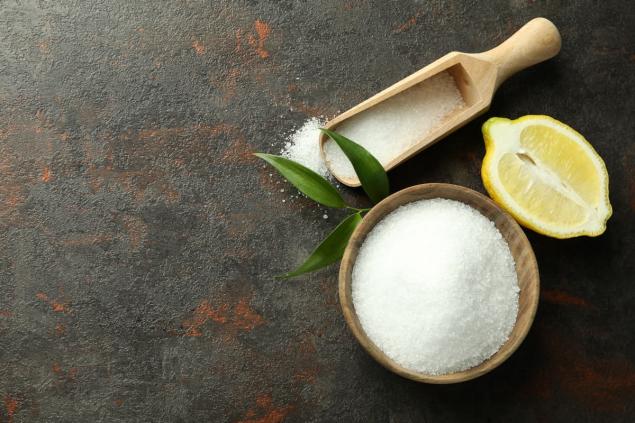
For some, such frequent use of soda or citric acid can cost a penny. We understand that a large amount of dishes requires appropriate amounts of water and detergent. However, there is a more economical version. It's simple. household-soap. Affordable and more resilient.
The secret of using household soap is that they can rub a sponge for washing dishes. It will be possible to stretch one block for a long time. And if the degree of contamination of dishes is very serious, then you need to rub the soap on the grater and dissolve it in water. Of course, the method is “cheap and angry”, but it works.

Similar in principle to the alternatives to store household chemicals are considered vinegar. Great wrestlers with outdated fat on dishes. Pour mustard powder for contamination, wait a little time and remove the remains of dirt. Or add a few spoons of vinegar to warm water and start washing dishes in this liquid.

Replacement of detergents: soap, mustard powder, vinegar and dish soda For the most difficult cases potteryKitchen or bathroom, we offer a universal recipe for cleaning products. Take 400 ml of warm water and add to it 100 g of cereal soap, 50 g of soda, 1 tbsp of ammonia and 2 tbsp of hydrogen peroxide. Stir everything carefully and apply it to a dirty surface. Just be sure to wear gloves and do not forget to ventilate the room, as the smell can be quite sharp.

Peels Soda for dishes Soda is the ideal substitute detergent funds. It copes perfectly even with the removal of scale, soot, burns, old spots. It can be washed as large pans with traces of fat, and ordinary plates after dinner. In addition, the method of using soda is as simple and understandable as possible.

Consumption of soda, which acts as a substitute for purchased detergent, is also small. It is enough to add 1 tbsp. l. soda to 1 liter of water and wash in this dish. If necessary scale offThen just put the soda in the pot or the kettle. Well, in case even if the soda ends in the house, you can try to remove the scale with a regular baking powder for the test.
Just do not rush to clean absolutely all the surfaces in the house with soda. Glass, matte coating, wood, ceramics, marble, silver and gold can easily be damaged by soda. It's all about its rather rigid abrasive property. When it comes to actively erasing fat, soda is unparalleled. But for cleaning a delicate surface, it is better to give preference to more sparingly.

Fresh aroma For cleaning dishes and kitchen coatings can be lemon Or citric acid. Lemon in this case will act as an acid that extinguishes soda. For example, serious contaminants can first be filled with soda. And then walk through them with a slice of lemon to achieve a characteristic hissing.
Citric acid powder is also used to remove scale. To clean a standard kettle, it is enough to add 2 spoons of acid to the water and boil it. By the same principle, cutlery can be cleaned. Add the powder to warm water, wait for it to dissolve in water and start washing.

For some, such frequent use of soda or citric acid can cost a penny. We understand that a large amount of dishes requires appropriate amounts of water and detergent. However, there is a more economical version. It's simple. household-soap. Affordable and more resilient.
The secret of using household soap is that they can rub a sponge for washing dishes. It will be possible to stretch one block for a long time. And if the degree of contamination of dishes is very serious, then you need to rub the soap on the grater and dissolve it in water. Of course, the method is “cheap and angry”, but it works.

Similar in principle to the alternatives to store household chemicals are considered vinegar. Great wrestlers with outdated fat on dishes. Pour mustard powder for contamination, wait a little time and remove the remains of dirt. Or add a few spoons of vinegar to warm water and start washing dishes in this liquid.

Replacement of detergents: soap, mustard powder, vinegar and dish soda For the most difficult cases potteryKitchen or bathroom, we offer a universal recipe for cleaning products. Take 400 ml of warm water and add to it 100 g of cereal soap, 50 g of soda, 1 tbsp of ammonia and 2 tbsp of hydrogen peroxide. Stir everything carefully and apply it to a dirty surface. Just be sure to wear gloves and do not forget to ventilate the room, as the smell can be quite sharp.
Son calls stepfather father and doesn't want me to go back to ex-husband
In the USSR brazenly stole the recipe for “Bird’s milk”, invented his Polish confectioner
